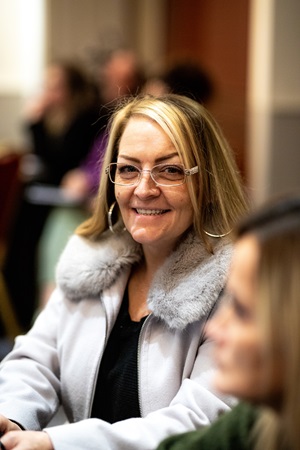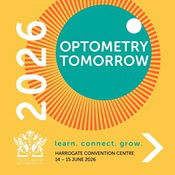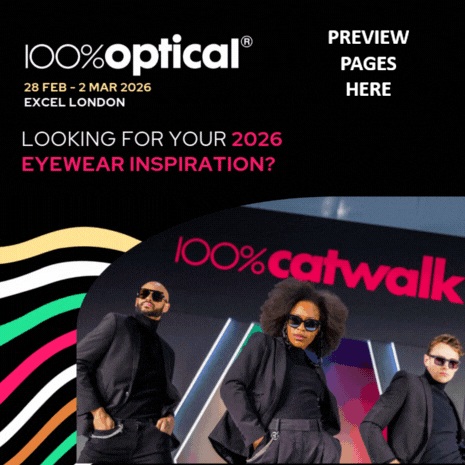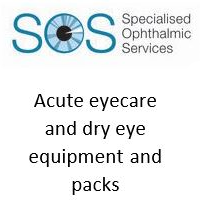General News
New Specsavers Pilot for Homeless
SPECSAVERS PILOTS FREE OUT-OF-HOURS EYE CLINICS FOR PEOPLE EXPERIENCING HOMELESSNESS
New data reveals significant vision issues and barriers to accessing eye care among people experiencing homelessness, prompting Specsavers to trial clinics.

40% have eye care issues, yet 44% have never had an eye test or not in the last 5 years.
- Nearly a third are put off going to an optician, due to not feeling comfortable or fear of costs.
- Specsavers is trialling out-of-hours clinics, providing free eye care in a safe, judgement-free space.
Specsavers is spotlighting the vision issues and challenges people experiencing homelessness are facing and trialling free out-of-hours eye clinics, dedicated to helping those unable to access essential eye care services. This comes as new data reveals the extent of the common sight issues and the barriers to seeking eye care that occur among people affected by homelessness.
Data from Expert Focus and Vision Care for Homeless People (VCHP), supported by Specsavers, found 40% of those experiencing homelessness report problems with their eyes or vision, while almost a quarter (17%) think they need replacement glasses. What’s more, 42% of glasses-wearers say they have frequently been without their glasses, with the most common reasons being they lost them (33%), or they broke (11%).
When discussing the impact of this, four in ten (44%) said they experienced physical symptoms such as headaches, while nearly a fifth (18%) have difficulty seeing faces. 44% find it difficult to read small print on forms or prescription labels, while almost a third (31%) struggle to see signs or bus numbers. This can have a profound impact on their situation, potentially fuelling feelings of insecurity, making it harder to complete accommodation or job forms to access the support they need.
What’s more, the research found that 44% of those experiencing homelessness have never had an eye test or not had one in 5 years or longer. When asked why, 29% revealed they’ve been put off going to an optician due to not feeling comfortable (16%) and believing that glasses would be too expensive (9%). Fear of discrimination or judgement were also other notable barriers to accessing healthcare, with 42% thinking that their housing situation would affect the way they are viewed by health professionals.
To help address this and provide anyone experiencing homelessness with a safe and judgement-free space, Specsavers is trialling free eye care clinics in practices out of hours. These will provide free eye-care, sight tests and glasses, if required. Specsavers will be taking learnings from these clinics to help shape the practice experience, ensuring it is more accessible to those affected by homelessness moving forwards.
Alongside this, Specsavers is calling on the government to remove the unnecessary barriers to eye health services for those experiencing homelessness and continuing to partner with Crisis, Vision Care for Homeless People (VCHP), the Simon Community Northern Ireland and Big Issue, to gain first-hand insights into the challenges those experiencing homelessness are facing and support them in accessing care. As part of this, Specsavers is providing free eye care within clinics across the Simon Community Northern Ireland Centres and Crisis Skylights.
When asked about the impact receiving free eye care or glasses would have on their lives, over half of the study respondents said it would help them read small print (56%), medication instructions (53%) and road / bus signs (42%), while 29% noted it would support them with working or finding work. They also said it would make them feel confident (49%), safer (38%) and better about themselves (31%), showing the positive ripple effect that receiving eye care can have.
“When I was homeless, my vision was blurry but I was anxious about getting my eyes tested because I felt confused about what I might be asked to pay. An eye test was not a priority and it’s not accessible.
“Not being able to access eye care and glasses often leads to further health problems, keeping people out of work and in a cycle of poverty. Now, the moment I wake up in the morning I put my glasses on – they make me feel good about myself and it’s essential for all people to have access to eye care.” Christina Colton, Expert Focus.
Specsavers Co-Founder Dame Mary Perkins said: “Specsavers was set up to make eye care available and affordable for everyone. We know there are health inequalities for people experiencing homelessness and we want to help tackle them.
“By working with our charity partners and volunteering at their clinics, as well as trialling our own out-of-hours pilot in practices, we want to help those affected by homelessness access the care they need. We hope that by having a positive eye care experience, it will give people confidence to come back in the future and to access other healthcare services.”
To find out more about the out-of-hours pilot and Specsavers charity partnerships, please visit, www.specsavers.co.uk/homelessness























